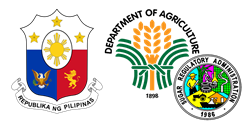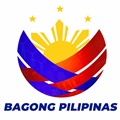CORPORATE GOALS, OBJECTIVES AND FUNCTIONS
CORPORATE GOALS AND OBJECTIVES
- Pro-active and effective policies and regulations to ensure viability, food safety, environmental sustainability and global competitiveness of the sugarcane industry.
- Product diversification, development and promotion.
- Responsive technical assistance and extension services to sugarcane industry stakeholders.
- Environment-friendly and innovative R&D technologies for the sugarcane industry stakeholders.
- Sustained development of expertise and human resources in the field of sugarcane industry development and related areas.
- Empowered SRA supportive of its Vision, Mission and Goals.
FUNCTIONS
- To recommend the establishment of a sugar production coefficient and a production quota which shall be attached to the land for each planter.
- To institute regulations for implementing, controlling and monitoring the production quotas.
- To establish domestic, export and reserve allocations.
- To explore and expand the domestic market and foreign markets for sugar and by-products, to assure mutual benefits to consumers and producers and to promote and maintain a proper balance of production of sugar and its by-products.
- To institute, implement and regulate an orderly system of quedanning, disposition and withdrawals of various forms of sugar from warehouse.
- To evaluate and recommend to the President new projects involving the production of sugar and its by-products and other products derived from sugarcane and sugar.
- To issue permits and licenses and collect corresponding fees and levies on the processing and manufacture of sugar and its by-products and other products derived from sugarcane and sugar.
- To enter, make and execute routinary contracts as may be necessary for or incidental to the attainment of its purposes between any persons, firm, public or private, and the Government of the Philippines.
- To do all such other things, transact such other businesses and perform such function directly or indirectly necessary, incidental or conducive to the attainment of the purposes of the Sugar Regulatory Administration.
CORPORATE THRUSTS AND MAJOR PROGRAMS
- Industry Safeguards
- Formulation of production allocation / market distribution, import and export policies.
- Enforcement of policies on the regulation and monitoring of imported high fructose corn syrup (HFCS)
- Generation of digitized mill district maps, installation of automated weather stations and use of drone technology and crop modelling information systems in crop estimation and monitoring.
- Registration of sugarcane farmers, farmers’ associations/ federations, mills and mill associations, sugarcane consolidators, muscovado producers, distilleries using molasses, sugar or sugarcane, international and domestic sugar traders, wholesalers and repackers of sugar, muscovado and molasses traders, and CBW food processors who are importing sugar for re-export.
- Formulation of policies to strengthen sugar anti-smuggling through private sector participation, LGU cooperation and improved Sugar Movement Monitoring.
- Accurate physical inventory of sugar stocks and audit of sugar quedans through e-quedan tracking system.
- Monitoring of production, withdrawals, coastwise shipments and prices of sugar.
- Technical audit/ assessment and environmental monitoring of sugar mills and refineries.
- Farm audits and assessment of production costs and price structure of sugar.
- Quality assurance of raw sugar, refined sugar and muscovado.
- Issuance of food safety regulations such as, Sanitary and Phytosanitary (SPS) certifications and import permits.
- Increase in Sugar Production, Farm Productivity and Income of Farmers
- Monitoring and evaluation of the Programs on Block Farm, Farm Mechanization and other farm support programs like socialized credit, technical assistance, farm management and planning.
- Cost-efficient production technologies and practices through a more focused research, development, extension and production support services in collaboration with PHILSURIN, UPLB, PCAARRD, BAR and other State Universities and Colleges.
- Strengthening and expanding the SRA breeding program in order to produce good ratooning, disease-resistant, high sucrose, high biomass content and climate resilient high yielding cane varieties through partnership with UPLB and PHILSURIN.
- Rapid propagation of sugarcane High Yielding Varieties (HYVs) in all sugarcane mill districts through the establishment of high-yielding variety nurseries and demo farms.
- Aggressive research and development program for a more competitive sugarcane industry through:
- Study on the effect of different soil ameliorants in the improvement of soil condition and yield of sugarcane farms in Tarlac Mill District.
- Mudpress for soil fertility and productivity.
- Project on productivity improvement through dethrashing and propping practices in Pensumil Mill District.
- Detailed study on the effects of eco-adaptive nutrients to boost sugarcane farm productivity.
- Developing strategies and technologies to increase sugarcane yield in Cagayan Valley.
- Adaptability trials of newly released sugarcane genotyped varieties.
- Integrated crop management for increased sugarcane productivity.
- Integrated pest management in sugarcane farming.
- Study on the response of HYVs to furrow distance in Davao Mill District.
- Study on the comparative performance of HYVs and different brands of fertilizers in Davao Mill Districts.
- Evaluation of greenhouse gas emission (GHG) of the activities in sugarcane farming and sugar production.
- Continuing development of Site-specific Soil Management and Fertilizer Requirement Guide.
- Enhancing sugarcane varieties for prolonged ratooning, productivity and profitability.
- Study/ demonstration on production of biogas from filtercake and other sugarcane materials.
- Product and by-product development for sugarcane.
- Productivity improvement from 59 TC/Ha to 70 TC/Ha (crop year 2013-2014 to 2019-2020); Sugar yield from 1.96 LKG/TC to 2.0 LKG/TC and increase of small farmers income by a minimum of P20,000 per hectare or improve their competitiveness and ensure sustainability of their livelihood.
- Crop financing through the socialized credit under RA 10659 and Public-Private Partnership (PPP).
- Development and promotion of sugarcane-based industries such as muscovado, bioethanol and power co-generation while maintaining sugar self-sufficiency.
- Improve capacity utilization of existing sugar mills and to partially supply the feedstock of the mandated requirement of bioethanol pursuant to R.A. 9367 through intensification or farm productivity improvement.
- Welfare of Sugarcane Farmers and Workers
- Development of training regulations and qualifications to upgrade the skills of sugarcane farmers and workers.
- Conduct of Outreach Programs and capability building programs such as farm-based trainings on cost-efficient practices in sugarcane farming, technical trainings on fertilizer usage and application, advisory services, on-site trainings, farm visits, etc..
- Capability building of farmers in farm/block farm management, financial management, human resource management etc..
- Conduct of training needs assessment on disaster risk reduction management for the sugarcane industry.
- Scholarship program for the children and dependents of small sugarcane farmers and workers to generate the expertise needed for industry development.
- Study on the effect of service providers to sugarcane block farms in Silay City.
- Collection of liens through sugar quedans to fund for the socio-economic needs of the sugarcane industry’s dependents implemented by the Sugar Industry Foundation, Inc. (SIFI).
- Enforcement of lien collection through sugar quedans for the Social Amelioration Program (SAP) of sugar workers implemented by DOLE.
- Bilateral arrangements with progressive sugarcane- producing countries and linkaging with international organizations.
- Convergence initiatives with DAR, DA, DOLE, DepEd, DSWD, DPWH, DTI, NEDA, DOE etc. for the farmers and workers welfare and rehabilitation of calamity stricken and vulnerable areas.
- Policy Support for the Philippine Sugarcane Industry
- Formulation of policies for general safeguards and measures against the surge of imported sugar and sugar substitutes.
- Formulation of policy for disaster risk reduction management for the sugarcane industry.
- Enhancing the capacity and disaster preparedness of sugarcane mill districts.
- Biofuel production policies for feedstock producers, feedstock traders and bioethanol producers.
- Formulation of policy on the use of sugarcane syrup for bioethanol production.
- Updating of the Sugar and Ethanol Blackbook.
- Development of Infrastructure Facilities
- Evaluation of the benefits of core samplers in selected sugar mills.
- Upgrading of the soils laboratory of Mindanao MDDCs.
- Construction of irrigation and water impounding infrastructures in sugarcane areas.
- Construction/rehabilitation of farm-to-mill roads and bridges in the sugarcane mill districts.
- Public Relations and Industry Communication Program
- Conduct of Mill District Development Council (MDDC) Summit, Sugar Summit and Stakeholders’ general assembly.
- Conduct of sugar fora, public consultations, focus group discussions, stakeholders meetings and press conferences.
- Publication of industry statistics, circularization / posting of sugar policies and guidelines, industry initiatives / updates and other relevant information in the SRA website.
- Participation in international sugar and bioenergy conferences, seminars, workshops.
- Promotion of Good Governance and Transparency in Public Service
- Establishment of a monitoring and evaluation system and geotagging of the status of all projects implemented for the sugarcane industry.
- Updating of the SRA transparency seal, service guide and compliance to the requirements of the anti-red tape law (ARTA).
- Continuing performance assessment of and disciplinary actions to frontline personnel providing regulatory services.
- Dissemination of SRA policies and industry updates such as circularization/posting of sugar policies and guidelines, industry statistics/initiatives and other relevant information in the SRA website.
- Strict adherence to the Freedom of Information (FOI) law.
- Improvement of SRA services specifically on matters concerning R&D, report automation, e-quedan systems, personnel development program, organizational enhancement and crop estimation improvement.
- Implementation of the “No Gift Policy” Quality Management System and SRA Manual of Corporate Governance.


